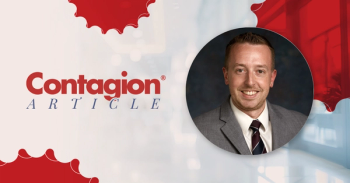
Why Do Some Patients Experience Recurrence of Clostridium difficile Infections After Treatment?
Julian Hurdle, PhD explains why some patients experience recurrence of Clostridium difficile after treatment.
Julian Hurdle, PhD, Associate Professor, Center for Infectious and Inflammatory Diseases, Institute of Biosciences and Technology, Texas A&M Health Science Center explains why some patients experience recurrence of Clostridium difficile after treatment.
Interview Transcript (slightly modified for readability):
“[Clostridium difficile infection (CDI)] is a disease characterized by a dysbiosis in which the patients that are treated with broad-spectrum antibiotics, undergo dysbiosis that disrupts their microbiota. The disruption of the microbiota is important because the microbiota, in essence, controls C. difficile as a pathogen. Essentially, C. difficile is an opportunistic pathogen. If the microbiota is disrupted, then you remove that ability of the microbiota to control CDI.
What happens after treatment [is that] you have 2 scenarios. You have 1 where the patients still have their disrupted microbiota. C. difficile, which is a spore-forming microorganism (it produces a spore). That spore is able to survive for an extended period of time within the intestinal tract, and it is not affected by antibiotic treatment. The survival of that spore then leads to germination of C. difficile, which then reseeds the infection, or, in essence, leads to recurrence of infections. That is one case where it is considered as an endogenous means of recurrence because C. difficile survives as a spore and then gives rise to recurrence in patients with continued dysbiosis.
Another aspect is reinfection. In reinfection, after treatment, [the patient’s] dysbiosis is still severe, the microbiota is still disturbed, and as a result, it is a good environment for reinfection to happen. The patient becomes infected with another set of C. difficile spores from the environment, and [then] within the environment within the intestinal tract, germination happens, and then it gives rise to the infection.
Part of the reason behind this dysbiosis being extended [is that] sometimes it [has to] do with underlying diseases [such as] inflammatory bowel diseases where patients are already prone to having disrupted microbiota. It also happens to do with the age of patients as well. Elderly patients may have less diversity in their microbiota.
The microbiota is critical to controlling C. difficile infection and is certainly critical to controlling whether or not a patient will [have a recurrence with the infection] after treatment.”
Newsletter
Stay ahead of emerging infectious disease threats with expert insights and breaking research. Subscribe now to get updates delivered straight to your inbox.


































































































































